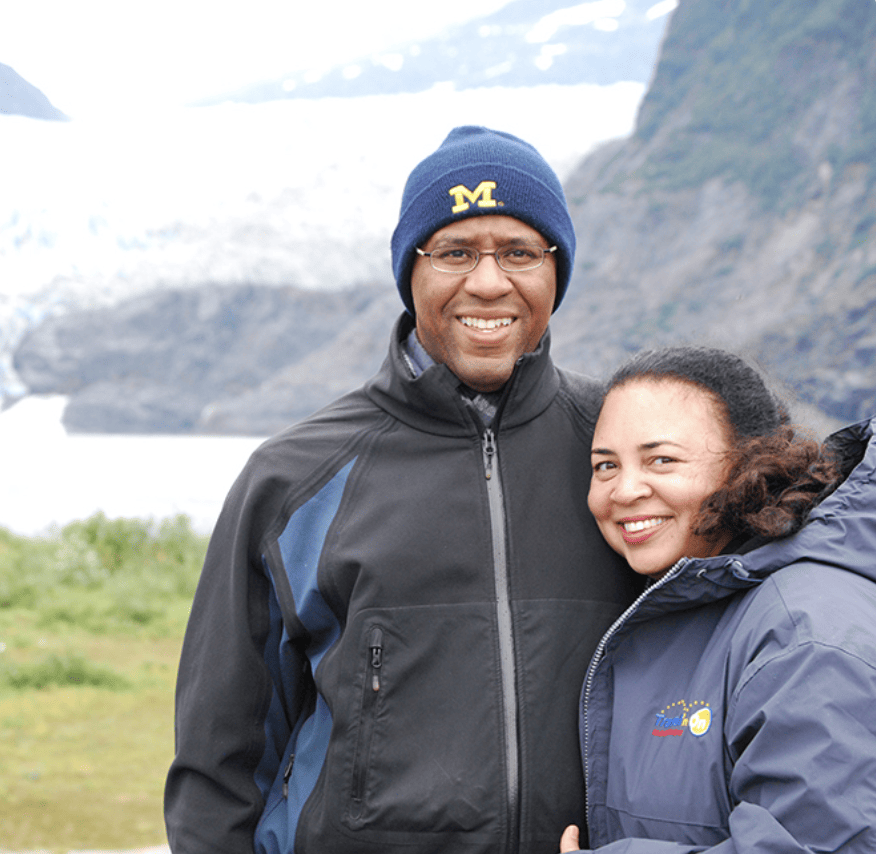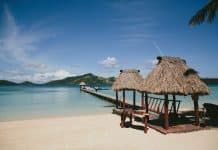
Gift cards are nice, but they don’t create much of a long-term impact. A travel incentive, however, can take participants on a transformational travel journey that can create lasting memories — and even change their lives.
Travel incentives can be much more than just a reward, says Tonya Fitzpatrick, Esq. Fitzpatrick, who is CEO of World Footprints, believes that travel in and of itself is transformational — “I can’t think of anyone who returns from a trip the same person they were when they left. Even if they did nothing but lay on the beach, they come back rejuvenated.” But to be truly transformational, incentive travel needs to be about more than R&R or changing physical locations, she says. “It is about changing perspectives and fostering personal development and cultivating a deeper connection with the world.”
She adds, “It’s important to create something that will live on. People forget about gift cards and other superficial incentives but when you create unforgettable memories, experiences live on.”
Prevue recently caught up with Fitzpatrick to learn more about how to turn a travel incentive into a transformational experience that will wow a group in the moment — and change lives while creating lasting memories.
Prevue: Why is being able to provide a life-changing travel incentive experience so important?
Fitzpatrick: It can lead to self discovery and personal growth. “If you don’t stretch you don’t grow” is one of my “Tonya-isms.” It also can lead to cultural awareness and global citizenship, as well as an appreciation for diversity.
Prevue: What are some of the tenets of transformational travel?
Fitzpatrick: Intentionality is important — setting a conscious intention to learn, grow and be open to new experiences.
Time for self-reflection and personal growth is another one, because that encourages individuals to really engage and foster a deeper understanding of their values, beliefs and aspirations. When you remove yourself from the day to day, and take time to reflect, it helps to answer some of life’s questions.
Mindfulness is another key tenet: Being present and engaged in the travel experience. That involves really engaging in and appreciating your surroundings and experiences. Meaningful interactions with locals and fellow travelers can provide new perspectives and contribute to personal growth as well.
One of my personal favorites is cultural immersion. It’s more than superficially observing a destination — this involves active engagement with local cultures and includes learning about customs, traditions and lifestyles. When people develop a more profound cross-cultural understanding, it illuminates our connectivity as humans and helps to eradicate, or at least address, a fear that someone may have about another culture.
Imagine how much harder your incentive participants might work knowing that they could earn something that they couldn’t just buy on the internet. It’s one thing to be able to tell somebody, “Oh, I took this trip to Croatia and I saw this and that” versus, “I took this trip to Croatia, I had a private dinner in a monastery and I went into a gold mine.” These are experiences they can’t just buy on their own.
Prevue: What can incentive planners do to turn an incentive trip into a transformational travel experience?
Fitzpatrick: Incorporating things like local culinary experiences, cultural workshops, arts and crafts classes, homestays and community service can enhance the overall experience.
Taking people out of their comfort zone can make travel more transformational, but you have to respect everyone’s tolerances. For example, my husband and I are planning small-group trips for our followers next year. We’re looking at the Galapagos Islands, which means we’re planning other options for those who don’t want to do a lot of walking or kayaking or snorkeling or swimming. Cooking classes can be a great option. One of my favorite activities when we take a group to Quito is to plan a meal with a local family so that everyone not only can have a wonderful authentic meal, but also really get to know local culture.
Community service that involves cultural immersion entails developing a deeper understanding of the needs of the local people, so it helps to work side by side with a local organization of some kind — hopefully you’ll get to meet some beneficiaries of what you’re doing as well. You get so much back when you’re serving other people and knowing that you’re doing something good for another community. It could be spending time picking weeds in an urban garden or cleaning up a rails-to-trails project, or spending time in a local school. Some of our most memorable experiences have been spending time with children in other communities. There are animal sanctuaries, such as for sea turtles in the Caribbean islands —who wouldn’t be transformed by standing guard when they’re hatching and making sure they get to the sea?
Even if you’re not traveling anywhere exotic, you can make even a trip to the city you live in more transformational when you see a different side of a familiar place. Seek out restaurants with cuisine you’re not familiar with and learn what cultural activities and community service needs there are in your own locale.
Prevue: Could you talk about specific travel experiences that changed your life?
Fitzpatrick: This is a loaded question because there’s been so many transformative trips. There have been trips that taught me more about myself and trips that challenged me, but basically every trip has added to my life knowledge about the world and different cultures.
Trips to places as different and Budapest and Alabama were transformative in that they both caused me to confront my unconscious biases and brought me closer to our common humanity. Having grown up in a multicultural family, I was shocked at some of my preconceptions.
On a solo trip to Budapest, Hungary, I met an Afrikaner family from South Africa. At that time, all I knew about South Africa was apartheid, which had been over for many years at that point. I was about to leave my table so the family could sit together, and one of the group asked me to stay and eat with them. As a person of color, I thought, oh my gosh, how uncomfortable might this be? Then we started talking, and, when they learned I was travelling alone and had no real plans for my short trip to Budapest, they invited me to stay with them. And so I ended up staying with them in their hotel and hanging out with the kids at night, and I had the best time and saw more of Budapest than I would have on my own.
And it dawned on me just how unfair I had been to paint these people with a broad brush. It was a similar experience to what I had in Alabama. I had never been that far south and was really nervous about it. Then my husband and I went to a juke joint with a friend who lives in Birmingham and what I saw there were people of all persuasions coming to this little shed in the middle of nowhere and celebrating together to music, which is a universal language.
These experiences showed me that the similarities we share far outweigh the differences — and that the differences aren’t bad. We need to honor them more for adding to the richness of this gumbo of humanity we all share.
That’s what inspires our company, World Footprints. It’s a multimedia company that focuses on the social impact of travel. Our focus has always been on the footprint we travelers leave behind. We see travel as an antidote to some of the some of the world’s ills, like fear of other cultures, and as a way to enhance our desire to protect our resources because this is the only planet we have.
You May Also Be Interested In…
2024 Incentive Evolution Summit
Cultural Immersion: The New Normal for Incentives
Build a Sense of Place Into Your Incentive







